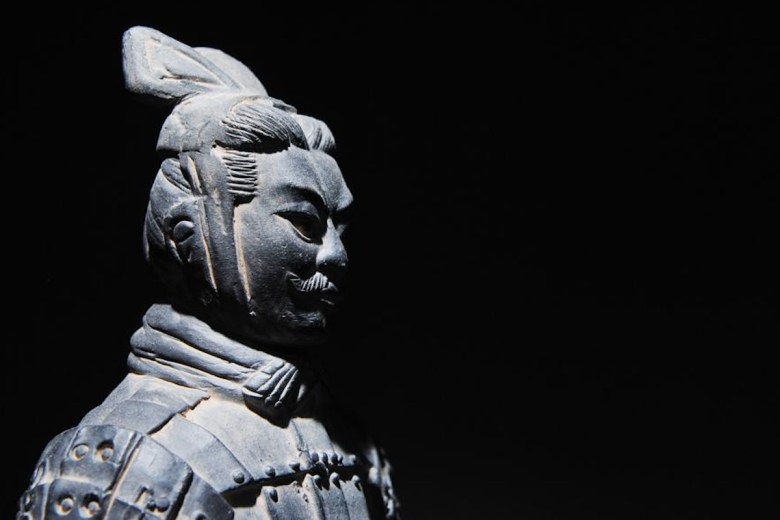Politics
Xi Capitalizes on Trump’s Tactical Missteps in China Relations

Donald Trump’s tenure has often been characterized by a tough stance on China, yet his administration’s strategies have increasingly appeared ineffective. As Trump prepares for a potential second term, the contrast between his rhetoric and the realities of international relations has become stark. While Trump has aimed to project strength, evidence suggests that his approach may be more bluster than substance, allowing China to seize the upper hand.
The ancient Chinese text, The Art of War by Sun Tzu, offers profound insights into strategy and leadership that remain relevant today. The principles outlined in this work highlight the importance of understanding both one’s own strengths and those of the opponent. Trump’s handling of China has failed to incorporate these lessons, leading to several costly miscalibrations in policy.
Trump entered the political arena promising to impose steep tariffs on Chinese goods to compel Beijing to change its practices. He believed that these tariffs would cripple China’s economy. However, as history has shown, China had already adapted from the initial trade war and was prepared for further confrontation. Trump miscalculated not only Beijing’s resolve but also the significant dependence that American businesses and consumers have on Chinese manufacturing. The tariffs, rather than weakening China, ultimately backfired, resulting in economic strain within the United States and forcing Trump to seek a truce with Xi Jinping.
In retaliation, China implemented its own strategies, targeting American farm exports and manufacturing sectors critical to Trump’s political base. By tightening controls on rare earth elements—key components in technology and defense—China effectively applied pressure where it was most impactful. Trump’s administration responded by softening its stance, delaying planned tariffs, and easing technology export restrictions.
Another critical blunder in Trump’s strategy has been the dismantling of America’s global alliances, which have historically bolstered its international standing. Sun Tzu emphasized the necessity of unity and shared purpose, a principle that Trump’s America First policy has often undermined. His withdrawal from international agreements—including the Paris Climate Accord and the World Health Organization—along with threats to NATO allies, has diminished the trust and cooperation that underpin alliances. This retreat has allowed China to position itself as a responsible global leader through initiatives such as the Belt and Road Initiative and partnerships in organizations like BRICS.
As global perceptions shift, surveys indicate that China’s international image has improved while that of the United States has declined. Trump’s approach has not only alienated allies but has also reinforced China’s narratives about American hegemony. The repercussions of these policies have given Beijing the opportunity to present itself as a stable and responsible power in stark contrast to the perceived chaos of American politics.
To regain lost ground, the United States must adopt a more disciplined approach, recognizing both its strengths and vulnerabilities in the face of a determined rival. America’s economic landscape is sensitive to political cycles and consumer sentiments, which are pressures that China’s political structure does not face. Thus, tariffs that fail to account for these dynamics can inadvertently strengthen China’s position.
In contrast, the United States retains significant advantages in technology, innovation, and a robust network of allies. Moving forward, a more strategic approach would involve building coordinated technology controls with international partners rather than relying on unilateral tariffs. The Biden administration’s introduction of the “small yard, high fence” policy for semiconductors illustrates a step in this direction.
Both the US and China possess inherent strengths and weaknesses. While China’s authoritarian model allows for consistent long-term strategies, it often struggles with innovation and talent retention, areas where the US excels. America’s democratic framework fosters creativity and adaptability, yet it frequently prioritizes immediate political gains over strategic long-term objectives.
Ultimately, succeeding in the US-China rivalry will require a return to foundational strategic principles, emphasizing both self-awareness and an understanding of the opponent. The lessons from The Art of War—that victory requires preparation and insight into both one’s capabilities and those of the enemy—remain timeless. Without a coherent strategy, Trump’s approach risks reinforcing the perception of the United States as a paper tiger, capable of intimidation yet lacking in substantive follow-through.
Linggong Kong, a PhD candidate in political science at Auburn University, specializes in international relations and has contributed insights to various reputable platforms. His analysis emphasizes the necessity for a more calculated and coherent strategy in international diplomacy.
-

 World5 months ago
World5 months agoSouth Korea’s Foreign Minister Cho Hyun to Visit China This Week
-

 Business5 months ago
Business5 months agoStarling Bank Plans Secondary Share Sale, Targeting $5.4 Billion Valuation
-

 Top Stories5 months ago
Top Stories5 months agoMunsang College Celebrates 100 Years with Grand Ceremony
-

 World5 months ago
World5 months agoPAS Aims to Expand Parliamentary Influence in Upcoming Election
-

 Business7 months ago
Business7 months agoKenvue Dismisses CEO Thibaut Mongon as Strategic Review Advances
-

 Lifestyle6 months ago
Lifestyle6 months agoHumanism Camp Engages 250 Youths in Summer Fest 2025
-

 Sports6 months ago
Sports6 months agoDe Minaur Triumphs at Washington Open After Thrilling Comeback
-

 Sports7 months ago
Sports7 months agoTupou and Daugunu Join First Nations Squad for Lions Clash
-

 Top Stories7 months ago
Top Stories7 months agoColombian Senator Miguel Uribe Shows Signs of Recovery After Attack
-

 World7 months ago
World7 months agoASEAN Gears Up for Historic Joint Meeting of Foreign and Economic Ministers
-

 Health6 months ago
Health6 months agoNew Study Challenges Assumptions About Aging and Inflammation
-

 Business7 months ago
Business7 months agoOil Prices Surge Following New EU Sanctions on Russia









